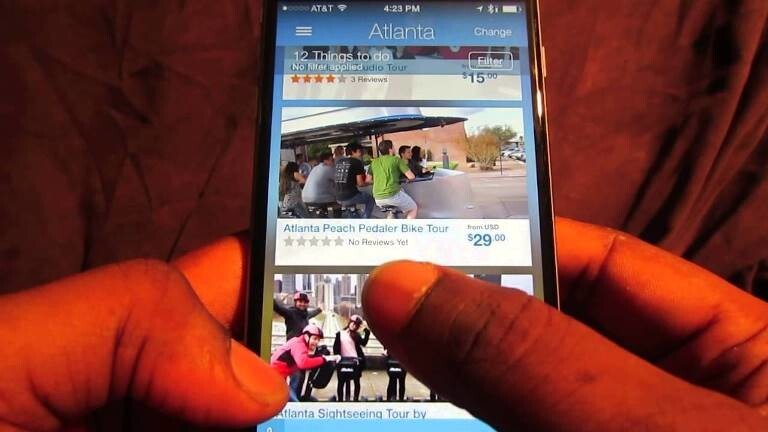
The face of tourism has undoubtedly changed dramatically over the past couple of decades. A combination of online services, the emergence of ultra-cheap air fares, and more widespread globalization than ever before has made tourism an accessible, affordable, and very attractive option for a huge portion of the population.
Technology has been a huge part of this tourism renaissance, and for good reason. Without technology, it would not have been possible to reduce prices so dramatically and expand tourism into such a gigantic global market.
One thing that’s often overlooked, however, is the very experience of tourism.
Tourism is now about more than just visiting a place
While we live in the digital age, activities (both outdoors and indoors) are now more popular than ever before. When people visit a new town or country, they are usually interested in experiencing everything that’s on offer on top of enjoying some relaxing time at their hotel or other place of accommodation.
So far, most people have not focused on this concept of tourism experience as a direct connection to the activities on offer. For instance, many services will attempt to guide potential tourists towards specific booking and perhaps offer an additional on-site service like a car rental but, after that, they leave holiday makers to their own devices.
What happens then is that tourists will look towards these activities by themselves and making bookings in the most traditional ways possible: in-person or via the phone. Imagine then the potential for a more organized service.
Tourism activities is an as-of-yet untapped segment with huge potential
Imagine, for a moment, a platform where holiday makers can turn to in order to book any kind of activity they want in their destination of choice. Today, we have platforms that can show potential travellers the cheapest fares, car rentals, and hotels but nothing more than that.
Several companies have already attempted to tap into this segment with varying levels of success. Airbnb, for example, the platform which has fundamentally disrupted the holiday accommodation industry, launched ‘Trips’ for this exact reason.
The idea behind this service is that people who visit any particular destination will want to experience said destination through the eyes of the local people. Authenticity, whether real or imagined, is a vastly important feature of the digital age, particularly for the younger generation.
An older couple on holidays, for example, might be content with staying at their hotel and eating at a few restaurants while taking scenic walks through the beach or the mountains, perhaps even visiting some museums or other attractions.
In contrast, younger people may be far more open to the idea of experiencing culture shock by allowing themselves to be immersed in new kinds of activities that they may have never tried before.
We are talking about an industry even bigger than car rentals
When talking about events, many people will erroneously assume that the potential industry is quite small. The truth, however, is quite the opposite. The activities market encompasses anything that you can think of in relation to tourism-related events including attractions, activities, and tours.
As such, the market is estimated at more than $135 billion. Those numbers are even bigger than the car rental industry, an area that an impressive number of online services and new startups have chosen to focus on.
Of course, we should not look at everything through rose-tinted glasses. The events market is not at all centralized as it’s a segmented area that would be incredibly difficult to organize, particularly for an emerging startup.
A lot of the activities on offer at any given venue anywhere in the world often have absolutely no relation to online bookings and services which means that the businesses which offer those activities have to propel themselves into the digital world before anything else can happen.
According to Joachim Freyhold, the CEO and founder of Tiketi.com, a B2C aggregator of tours and activities that offer a variety of curated unique travel experiences for the popular African destinations:
The tours and activities market is a relatively new market that is becoming a big focus within the online travel industry. As such, we believe a mobile app would be a game changer for this sector as in fact, unlike flights and hotel bookings, travel activities can be booked when one has already arrived at the destination.
Look into the future and an organized approach will be very lucrative
Any startup that will be able to offer businesses which are not necessarily technologically-inclined a way to approach new customers via an online system will have a very lucrative future ahead of them.
The problem, of course, is that small businesses all around the world are often incredibly slow to adapt themselves to these new ideas. After all, taking risks is not something that small businesses are often willing to do.
For instance, imagine an events coordinator which simply has an office in a tourist-heavy area. They are already getting a lot of bookings for events, many of which are actually made in person.
Convincing that business to turn their interests online instead would be a very hard ask. A startup would need to have working examples of why that business would see more customers and increase their profits through an online platform and not just empty promises and fancy concepts.
Even with these issues, it’s certain that the global activities market will soon see many more startups vying for a piece of the pie. The future of activities is definitely very exciting and there is a lot of room for innovation in the market.
Get the TNW newsletter
Get the most important tech news in your inbox each week.




